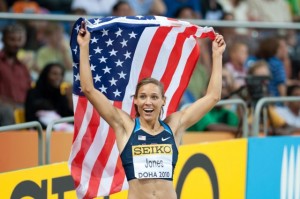 Today’s guest post is written by Allen Mireles.
Today’s guest post is written by Allen Mireles.
Media training, long considered a mainstay of public relations, is more important today than ever before, but must include the appropriate use of social media.
Recently, no fewer than five Olympic athletes have demonstrated poor judgement in their online communications, several of which resulted in harsh penalties.
British cyclist, Bradley Wiggins, showed poor judgment in tweeting about his partying after winning his fourth gold medal.
Australian swimmer, Stephanie Rice, was criticized for tweeting a photo of herself wearing a revealing bathing suit.
American track and field athlete, Lolo Jones shared a controversial tweet about the U.S. men’s archery team, which is still being discussed online.
Greek track and field athlete, Voula Papchristou, was removed from the games after a racist tweet about the athletes from Africa.
And Swiss football player, Michel Morganella, was kicked off the team after tweeting a threat against the South Koreans.
A reputation can be enhanced or destroyed online in a matter of days. Reputation management tactics, while valuable and effective, can only go so far.
People talk. And today, people share.
Information is available within seconds and goes around the world in the blink of an eye. What you say you stand for and the actions you take online are easily discovered, whether you are a brand spokesman or officer, a celebrity, an Olympic athlete, or an individual.
For anyone who is not experienced in communicating with the media, training can be extremely valuable and can make the difference between making a strong positive impression and coming across as an idiot–or worse. For some of the athletes in the glare of world attention, training in what is considered appropriate use of online media could have helped save a spot on the Olympic team.
Media training can include information about how to dress appropriately for an interview, how to pause before answering a journalist’s questions, how to stay focused on a particular message, or even how to sit or stand to portray the right impression in television or video interviews.
Much of the advice is simply practical. Some of the training includes rehearsal of approved talking points, and stopping to think before responding.
According to the IOC Social Media, Blogging and Internet Guidelines for Participants and Other Accredited Persons at the London 2012 Olympic Games,
Postings, blogs, and tweets should at all times conform to the Olympic spirit and fundamental principles of Olympism as contained in the Olympic Charter, be dignified and in good taste, and not contain vulgar or obscene words or images.
Unfortunately, these five athletes overlooked what to them may have seemed like unimportant fine print. Guidelines serve an important function but training and rehearsal help people take ideas from concept to solid understanding.
In today’s uber-connected online world, knowing how to use social networks and digital tools effectively is imperative. For anyone who may be thrust into the glare of world wide publicity, like an Olympic athlete, there are basic things one does and does not do using social media.
Knowing what those are can make all the difference in the world.
Allen Mireles is vice president at Arment Dietrich and is based outside of Toledo. She has diverse expertise in healthcare IT, manufacturing, and education. You can follow her on Twitter at allenmireles, add her to your circles on G+, link to her on LinkedIn, or friend her on Facebook.
